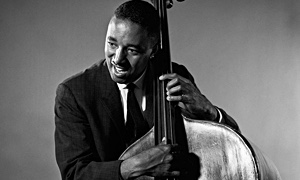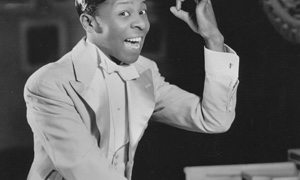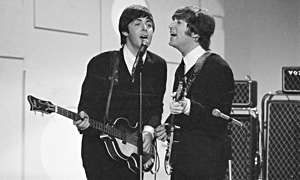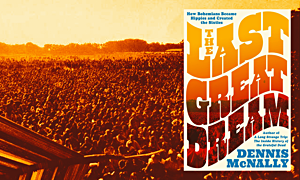Home » Jazz Articles » Book Review » On Jazz: A Personal Journey
On Jazz: A Personal Journey
 On Jazz:A Personal Journey
On Jazz:A Personal Journey Alyn Shipton
300 Pages
ISBN: 978-1-108-83423-0
Cambridge University Press
2022
Alyn Shipton is a distinguished jazz journalist, bassist, BBC radio presenter and biographer who may be best known for his A New History of Jazz (Continuum, 2001). In some ways, the present volume is a companion piece, because if you are inclined to wonder how anyone could have ever learned enough to write a 900 page volume, you may find the answer here. The subtitle, "a personal journey" is an indication of what is to be found: How Shipton, an Englishman, made the journey from New Orleans to

Theo Croker
trumpetb.1985
The index runs to 19 pages, and probably has 60 to 80 names per page. Do the math. So perhaps 1,600 musicians appear over the course of 260 or so pages. Thus, you can probably figure on meeting 6 people a page. That's quite an assembly. Depending on your tastes and preferences in the music, some are going to be very well known, not to mention iconic. And, inevitably, some are going to be obscure. Bassist

Ray Brown
bass, acoustic1926 - 2002

Count Basie
piano1904 - 1984

Fats Waller
piano1904 - 1943

Duke Ellington
piano1899 - 1974

Oscar Peterson
piano1925 - 2007

Louis Armstrong
trumpet and vocals1901 - 1971

Woody Shaw
trumpet1944 - 1989

Artie Shaw
clarinet1910 - 2004

Lorenzo Tio, Jr.
woodwinds1893 - 1933
By and large, if you are looking for a larger point in Shipton's journey, it is probably something like the divisions that we seem so enamored of, stylistic, racial, or otherwise are probably less important to working jazz musicians than to people intent on constructing pigeonholes. Different species frequently play peacefully together, some trad types evolved into bop players, some instrumentalists are really chameleons, and it is, in the final analysis, all music anyway. For Shipton, lessons were where he found them, and age, ethnicity, or nationality did not seem to matter a great deal. Since Shipton himself has been known to play classical bass, the idea that a modern musician is limited by anything other than choice or temperament to one genre or another is, after all, not a great discovery. There are now plenty of players—cats of all colors, genders, and such—who can do both, or who even experiment with the outer edges of what some might regard the exotic or avant-garde. If you do not get this point after following Shipton's most interesting and crowded journey through a jazz life, then you are probably resistant to getting it at all.
If it seems as if the take-away here is that the story is in the telling, then that is a proper conclusion. It is hard to believe that anyone who picks up this volume with an open mind is not going to find something new, interesting, informative, or enjoyable. It may well be that a reader may want to make some stops along the way to hear the music that Shipton has spent a lifetime in assimilating because if playing beats listening, listening certainly beats nothing, and Shipton makes a wealth of suggestions without every quite saying, "Go out and listen to this." So, instead, I will say read this very interesting book in whatever fashion you choose, and then use it as a basis for your own explorations. That, after all, is how Alyn Shipton approached the very different worlds he visited, and if it worked for him, then why not for you?
Tags
Book Review
Richard J Salvucci
Publisher
Alyn Shipton
Theo Croker
Ray Brown
Count Basie
Fats Waller
duke ellington
oscar peterson
Woody Shaw
Artie Shaw
Louis Armstrong
Comments
PREVIOUS / NEXT
Support All About Jazz
 All About Jazz has been a pillar of jazz since 1995, championing it as an art form and, more importantly, supporting the musicians who make it. Our enduring commitment has made "AAJ" one of the most culturally important websites of its kind, read by hundreds of thousands of fans, musicians and industry figures every month.
All About Jazz has been a pillar of jazz since 1995, championing it as an art form and, more importantly, supporting the musicians who make it. Our enduring commitment has made "AAJ" one of the most culturally important websites of its kind, read by hundreds of thousands of fans, musicians and industry figures every month.





 Buy Now
Buy Now























